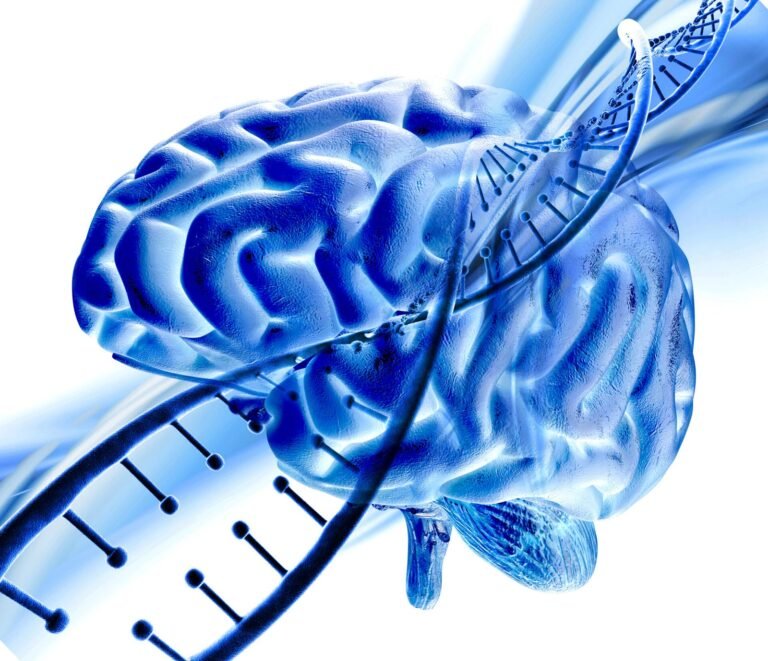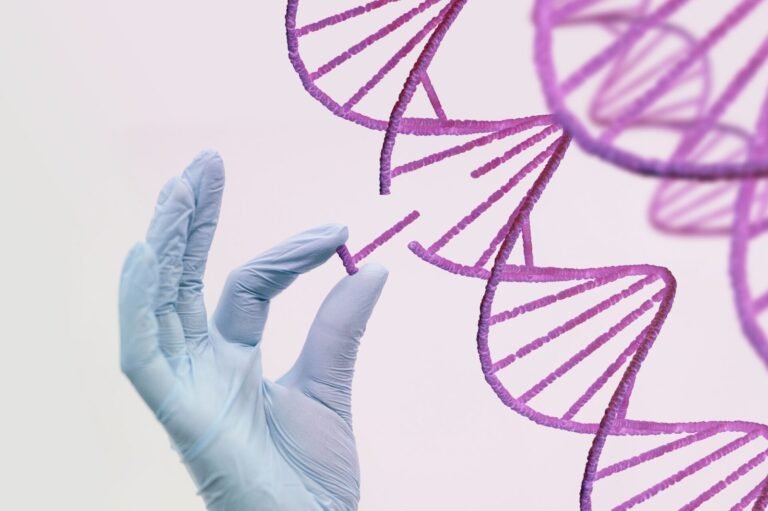Ethical Implications in Pharmacogenomics: Informed Consent and Data Sharing in Research
“The first principle of informed consent is to allow individuals to make their own decisions.” – Francis Collins
In the rapidly advancing field of pharmacogenomics, ethical considerations are of paramount importance. As we delve deeper into the realm of personalized medicine based on an individual’s genetic makeup, it becomes crucial to address the ethical implications surrounding informed consent and data sharing in research.
Pharmacogenomics, the study of how an individual’s genetic variation affects their response to medications, holds great promise for tailoring treatments and improving patient outcomes. However, this revolutionary field raises complex ethical questions that must be carefully navigated to ensure responsible and equitable practices.
Through this article, we will explore the ethical challenges and considerations in pharmacogenomics research. From the importance of informed consent to the need for data privacy and the equitable distribution of benefits, we will delve into the ethical landscape that underpins this groundbreaking field.

Key Takeaways of Ethical Implications in Pharmacogenomics:
- Informed consent is the cornerstone of ethical practice in pharmacogenomics research, allowing individuals to make autonomous decisions about the use of their genetic information.
- Data privacy and confidentiality are critical concerns in pharmacogenomics, necessitating robust safeguards to protect individuals’ sensitive genetic data.
- Equitable access to pharmacogenomics treatment is essential to address health disparities and promote justice in healthcare.
- Clear guidelines and protocols should be established for responsible data sharing in pharmacogenomics research, ensuring that individuals’ genetic information is used ethically and with proper consent.
- The potential for genetic discrimination underscores the need for legal protections and societal measures to prevent discrimination based on genetic information.
The Importance of Informed Consent in Pharmacogenomics Research
Informed consent is a fundamental ethical principle in the field of pharmacogenomics research. It serves as a crucial safeguard to ensure that patients have the autonomy and agency to make informed decisions about the use of their genetic information in research studies.
Ethical guidelines and considerations in genetics research emphasize the significance of obtaining informed consent from patients before conducting genetic research and testing. Informed consent requires clear and comprehensive communication with patients regarding the purpose, risks, and potential benefits of participating in pharmacogenomics studies.
By obtaining informed consent, researchers respect individuals’ rights and enable them to make choices based on their beliefs, values, and personal circumstances. This process establishes a mutual understanding between the researcher and the patient, promoting transparency and trust in the research endeavor.
Furthermore, informed consent is essential for ethical considerations in genetics research to address the potential ethical and moral dilemmas that may arise. It allows researchers to navigate complex issues such as privacy concerns, data sharing, and the potential for incidental findings.
“Informed consent is not merely a formality but a vital cornerstone for establishing ethical guidelines and ensuring that patients’ rights and interests are protected in pharmacogenomics research.”
It is crucial that patients are provided with all the necessary information, in a manner they can understand, allowing them to make well-informed decisions about their genetic data and how it will be used. This empowers individuals to actively participate in the advancement of pharmacogenomics research with a clear understanding of the potential risks, benefits, and implications of their involvement.
Effective informed consent practices also contribute to safeguarding patient privacy and maintaining confidentiality. Patients need assurance that their genetic information will be handled responsibly and securely throughout the research process.
The ethical considerations associated with genetics research underscore the importance of informed consent within the field of pharmacogenomics. By upholding this fundamental principle, researchers can ensure the protection of patient rights, foster trust and collaboration, and advance the field of pharmacogenomics in an ethical and responsible manner.
Ethical Guidelines for Informed Consent in Pharmacogenomics Research
Several ethical guidelines and frameworks have been developed to guide researchers in obtaining informed consent in the field of pharmacogenomics. These guidelines emphasize the importance of:
- Providing clear and comprehensive information about the purpose, risks, and benefits of the research study.
- Ensuring that patients have an opportunity to ask questions and seek clarification.
- Obtaining voluntary and uncoerced consent from patients.
- Respecting patient autonomy and their right to withdraw from the study at any point.
Adhering to these ethical guidelines is vital to protect the rights and well-being of patients, promote ethical research practices, and ensure the trust and engagement of individuals in pharmacogenomics research.
| Ethical Guidelines for Informed Consent | Description |
|---|---|
| Provide Clear Information | Ensure that patients have a thorough understanding of the research purpose, procedures, risks, benefits, and potential alternatives. |
| Promote Voluntary Participation | Ensure that patients provide their consent freely, without coercion or undue influence. |
| Facilitate Communication and Questions | Allow patients to ask questions and seek clarification about the study and their rights as research participants. |
| Respect Autonomy and Withdrawal Rights | Recognize patients’ right to make autonomous decisions about their participation and to withdraw from the study at any time. |
Addressing Equity and Justice in Pharmacogenomics Treatment
Equitable access to healthcare is a fundamental principle that ensures fairness and justice in the provision of medical services. In the field of pharmacogenomics, it is crucial to address health disparities and promote equitable access to treatment. This includes addressing the unique challenges faced by minority and underserved populations in accessing and benefiting from pharmacogenomics innovations.
Health disparities, stemming from social, economic, and racial factors, have long been a concern in healthcare. These disparities often result in unequal access to quality healthcare services, further exacerbating existing health inequities. The integration of pharmacogenomics into clinical practice has the potential to revolutionize personalized medicine, leading to improved treatment outcomes for individuals. However, without proper regulatory frameworks and ethical considerations, there is a risk that these advancements may disproportionately benefit certain populations, widening the gap in healthcare disparities.
To mitigate these challenges, regulatory bodies should establish guidelines and frameworks that promote equitable access to pharmacogenomics treatment. This requires targeted efforts to ensure that disadvantaged groups, such as racial and ethnic minorities, have equal opportunities to benefit from pharmacogenomics innovations. By addressing the barriers that hinder access, such as financial constraints, lack of awareness, and cultural biases, healthcare systems can work towards achieving equitable distribution of personalized medicine.
| Barriers to Equitable Access | Strategies for Addressing Health Disparities |
|---|---|
|
|
Furthermore, healthcare systems must prioritize education and training initiatives to ensure healthcare providers are equipped with the knowledge and skills to deliver pharmacogenomics-based care in an equitable manner. This includes promoting cultural competency, addressing unconscious biases, and fostering inclusivity to provide patient-centered care.
By prioritizing equity and justice in pharmacogenomics treatment, we can strive towards a healthcare system that offers personalized medicine to all individuals, irrespective of their racial, ethnic, or socioeconomic background. This requires a collective effort from policymakers, healthcare providers, researchers, and patient advocacy groups to champion access, equity, and justice in the utilization of pharmacogenomics innovations.
Key Takeaways
– Equitable access to pharmacogenomics treatment is essential to address health disparities and promote justice in healthcare.
– Regulatory frameworks and ethical considerations should be in place to prevent further exacerbation of existing health disparities.
– Barriers to equitable access, such as financial constraints and cultural biases, must be addressed through targeted strategies.
– Education and training initiatives for healthcare providers are crucial in delivering equitable pharmacogenomics-based care.
– By prioritizing equity and justice, we can strive for a healthcare system that offers personalized medicine to all individuals.
Privacy and Confidentiality Concerns in Pharmacogenomics
The field of pharmacogenomics raises significant privacy and confidentiality concerns due to the sensitive nature of genetic information. With the increasing prevalence of genetic testing and the widespread storage and use of genetic data for research and clinical purposes, it is crucial to prioritize the protection of individuals’ privacy.
Genetic testing ethics and personalized medicine ethics play a pivotal role in addressing these concerns. Respecting patients’ privacy rights and ensuring the secure handling of genetic data are essential ethical considerations in pharmacogenomics.
To safeguard genetic data and mitigate privacy risks, legal and ethical measures should be in place. This includes implementing robust data protection protocols, strict access controls, and anonymization techniques to ensure data security and prevent unauthorized access or use of genetic information.
“The responsible handling of genetic data is essential to maintain the trust between patients, researchers, and healthcare providers.”
Furthermore, privacy concerns in pharmacogenomics are closely linked to the ethical implications of personalized medicine. As advancements in pharmacogenomics enable tailored treatment plans based on individuals’ genetic profiles, the potential impact on privacy becomes paramount.
The ethical guidelines for genetic testing and personalized medicine underscore the importance of obtaining informed consent from individuals before conducting genetic tests or using their genetic information. Informed consent ensures that individuals have a clear understanding of how their genetic data will be used, shared, and stored, empowering them to make well-informed decisions regarding their privacy.
| Ethical Considerations | Actions |
|---|---|
| Respecting patient autonomy | Ensuring informed consent and providing transparent information about privacy rights |
| Data security | Implementing robust data protection measures and strict access controls |
| Anonymization | Applying anonymization techniques to protect individuals’ identity in research datasets |
Overall, genetic testing ethics and personalized medicine ethics guide the responsible and ethical use of genetic data in pharmacogenomics. By prioritizing privacy and confidentiality, respecting patient autonomy, and implementing robust data protection measures, we can ensure that pharmacogenomics research and personalized medicine advancements are conducted in an ethical and privacy-conscious manner.
Data Sharing and Ethical Considerations
The sharing and storage of genetic data in pharmacogenomics research raise important ethical considerations. Two key areas of concern are:
Informed Consent and Genetic Data
One ethically significant issue relating to data sharing in pharmacogenomics research is ensuring that individuals’ genetic information is used responsibly and with proper consent. Informed consent plays a crucial role in respecting and protecting the autonomy and privacy of participants.
“Informed consent is a fundamental ethical principle in pharmacogenomics research. It ensures that patients have the right to make autonomous decisions about the use of their genetic information in research.”
Researchers and institutions should have clear policies and protocols in place for obtaining informed consent from individuals who contribute their genetic data. This includes providing comprehensive and understandable information about the research, potential risks, benefits, and intended uses of the data. Informed consent should be obtained in a way that allows individuals to make voluntary decisions and understand the implications of sharing their genetic information.
Incidental Findings and Disclosure
Another ethical consideration in data sharing within the field of pharmacogenomics relates to incidental findings. Incidental findings refer to the discovery of genetic information unrelated to the specific research question but potentially relevant to the participant’s health.
Researchers must establish guidelines for the disclosure and management of incidental findings. These guidelines aim to balance participants’ right to be informed about potentially relevant health information with the potential psychological and practical implications of learning such information.
Clear protocols should be in place for determining the significance of incidental findings, providing appropriate support and counseling to participants, and respecting their autonomy in deciding whether to receive and act upon such information.
| Ethical Considerations | Key Points |
|---|---|
| Informed Consent | Clear policies and protocols should be in place for obtaining informed consent from individuals contributing genetic data. |
| Autonomy and Privacy | Respecting individuals’ autonomy and privacy is crucial in data sharing, ensuring that participants have control over the use of their genetic information. |
| Disclosure of Incidental Findings | Guidelines should be established to determine the significance of incidental findings and respect participants’ autonomy in receiving and acting upon such information. |
Ethical Implications of Genetic Testing and Discrimination
The use of genetic information in pharmacogenomics raises concerns about potential discrimination based on genetic traits or predispositions. It is essential to protect individuals from genetic discrimination by employers or insurers based on their genetic test results. Legal protections, such as the Genetic Information Nondiscrimination Act (GINA), help prevent discrimination, but further measures may be needed to address the broader societal impact of genetic testing and discrimination.
“Genetic testing has the potential to uncover valuable information about an individual’s health risks and treatment options. However, it also presents ethical dilemmas, particularly when it comes to genetic discrimination. We must ensure that individuals have equal opportunities and are not disadvantaged due to their genetic information.”
The Genetic Information Nondiscrimination Act (GINA)
One important legislative measure aimed at preventing genetic discrimination is the Genetic Information Nondiscrimination Act (GINA), enacted in 2008 in the United States. GINA prohibits discrimination by health insurers and employers based on an individual’s genetic information. It prohibits employers from using genetic information in employment decisions, such as hiring, firing, or promotions. Similarly, health insurers are prohibited from using genetic information to deny coverage or set premium rates.
Under GINA, individuals are protected from genetic discrimination in both the employment and health insurance domains. Genetic information includes not only the results of genetic tests but also an individual’s family medical history.
However, GINA has its limitations. It does not cover life insurance, long-term care insurance, or disability insurance. Additionally, GINA only applies to employers with 15 or more employees.
Broader Societal Impact
While legal protections like GINA are important steps in preventing genetic discrimination, the broader societal impact of genetic testing and discrimination needs to be addressed. Genetic testing can reveal predispositions to certain diseases or conditions, which may lead to stigmatization and discrimination in various aspects of an individual’s life. Employers or insurers may use genetic information to make employment or coverage decisions, potentially disadvantaging individuals based on their genetic test results.
It is essential to promote awareness and education about the ethical implications of genetic testing and discrimination to ensure that individuals are not unfairly treated or marginalized based on their genetic information. Open dialogue, ethical guidelines, and public policy efforts are needed to foster a society that respects and protects individuals’ genetic privacy and prevents discrimination in all its forms.
| Challenges | Actions |
|---|---|
| Lack of comprehensive legal protection | Advocate for expanded legislation to cover areas not protected by current laws, such as life insurance and disability insurance. |
| Societal stigmatization | Educate the public about the benefits and limitations of genetic testing, promoting understanding and acceptance. |
| Employment and insurance discrimination | Ensure strict enforcement of existing laws, provide resources for individuals who experience discrimination, and develop stronger policies to protect genetic privacy. |
| Unequal access to genetic testing | Advocate for equitable access to genetic testing and personalized medicine, particularly for underrepresented and marginalized populations. |
Ensuring Ethical Use of Genetic Data in Pharmacogenomics
In the field of pharmacogenomics, responsible use of genetic data is of utmost importance. Adhering to ethical guidelines and standards is crucial for researchers and healthcare providers to safeguard patient privacy, maintain confidentiality, and ensure the informed and ethical use of genetic information. To achieve this, several key considerations must be addressed:
Prioritizing Patient Privacy and Confidentiality
Responsible use of genetic data necessitates a commitment to patient privacy and confidentiality. All individuals have a right to control their genetic information and decide how it is used. Healthcare providers and researchers must implement robust security measures to protect the privacy of genetic data, preventing unauthorized access or breaches.
Obtaining Informed Consent
Informed consent is a crucial ethical principle that should be followed in pharmacogenomics research. Patients must be provided with clear and comprehensive information about the purpose and potential risks and benefits of genetic testing and research. Obtaining informed consent ensures that individuals have the autonomy to make decisions about the use of their genetic data and participate in pharmacogenomics studies knowingly and willingly.
Using Genetic Data for Its Intended Purpose
Genetic data obtained in pharmacogenomics research should only be used for its intended purpose, which is to advance personalized medicine and improve patient outcomes. This requires researchers and healthcare providers to adhere to ethical guidelines and guidelines set forth by regulatory bodies. Genetic data should not be misused or exploited for any discriminatory or non-medical purposes.
Policies and Protocols for Ethical Use and Storage of Genetic Data
Clear policies and protocols should be in place to guide the ethical use and storage of genetic data. These policies should outline the proper handling, storage, and sharing of genetic information, ensuring that it is stored securely and used responsibly. Additionally, mechanisms for regular review and updating of these policies should be established to keep up with evolving ethical standards and technologies.
“Researchers and healthcare providers should prioritize patient privacy, obtain informed consent, and use genetic data responsibly and only for its intended purpose.”
By prioritizing patient privacy, obtaining informed consent, and following ethical guidelines for responsible use and storage of genetic data, we can ensure that pharmacogenomics research and its applications are conducted with the highest ethical standards in mind. It is crucial for the advancement of personalized medicine and the well-being of patients that ethical considerations remain at the forefront of pharmacogenomics research and practice.
Considerations of Justice in the Distribution of Pharmacogenomics Benefits
Distributive justice is a fundamental ethical principle that should guide the distribution of benefits in the field of pharmacogenomics. It is essential to ensure that the advantages of personalized medicine are equitably distributed among all individuals, irrespective of their race, ethnicity, or socioeconomic status. Efforts should be made to address health disparities and promote justice in healthcare decision-making.
One of the key challenges in achieving equitable distribution is the existence of health inequities and disparities that disproportionately affect certain populations. For example, individuals from underserved communities may face barriers to accessing pharmacogenomics treatment and may not receive the same level of care as others. This creates a pressing need to address these disparities and ensure that all individuals have equal opportunities to benefit from advancements in pharmacogenomics.
Achieving justice in the distribution of pharmacogenomics benefits requires a multifaceted approach, encompassing various aspects of healthcare and society. Some key considerations include:
- Promoting Access: Efforts should be made to improve access to pharmacogenomics services for underserved populations. This can be achieved through targeted programs, outreach initiatives, and policy changes that aim to remove barriers and increase availability.
- Reducing Disparities: Health disparities in treatment outcomes and access to personalized medicine should be actively addressed. This involves identifying and eliminating the root causes of disparities, such as systemic discrimination or unequal resource allocation.
- Educating and Empowering: Education about pharmacogenomics and its benefits should be provided to healthcare providers, patients, and the general public. This knowledge empowers individuals to make informed decisions and advocate for equitable access to personalized medicine.
- Research and Policy: Continued research, policy development, and collaboration among stakeholders are crucial to identify and rectify injustices in the distribution of pharmacogenomics benefits. This includes evaluating the impact of current policies and implementing measures to promote equity in healthcare delivery.
Example: Barriers to Access and Addressing Disparities
In order to illustrate the impact of health disparities in pharmacogenomics, consider the following table that highlights disparities in access to pharmacogenomic testing among different racial and ethnic groups:
| Racial/Ethnic Group | Percentage of Population | Percentage of Access to Pharmacogenomic Testing |
|---|---|---|
| African American | 13% | 7% |
| Hispanic/Latino | 18% | 12% |
| White | 60% | 75% |
| Asian | 6% | 5% |
This data clearly highlights the disparities in access to pharmacogenomic testing among racial and ethnic groups. Efforts should be made to address these disparities and ensure that individuals from all backgrounds have an equal opportunity to access the benefits of pharmacogenomics.
By prioritizing justice in the distribution of pharmacogenomics benefits, we can work towards a healthcare system that provides equal opportunities for all individuals to benefit from the advancements in personalized medicine.
Ethical Challenges in Pharmacogenomics Research
Pharmacogenomics research presents several ethical challenges that require careful consideration and addressal. These challenges encompass various aspects, including informed consent, privacy concerns, data sharing, and justice in the distribution of benefits. Whether it’s ensuring individuals have a say in the use of their genetic information, safeguarding their privacy, or promoting fairness in the accessibility of pharmacogenomics advancements, ethical considerations play a critical role in guiding responsible research practices.
To navigate these challenges, ongoing discussion, open dialogue, and collaboration among researchers, healthcare providers, and patients are essential. Such collaborative efforts can lead to the development of ethical guidelines, frameworks, and policies that safeguard the interests of all stakeholders involved in pharmacogenomics research.
“Ethical challenges are inherent in the ever-evolving field of pharmacogenomics. It is crucial for researchers and practitioners to engage in continuous dialogue and strive for ethical decision-making processes at every stage of research and implementation.”
By addressing the ethical challenges posed by pharmacogenomics research, we can ensure the responsible and ethical conduct of studies, respect individual autonomy and privacy, promote justice in access to healthcare innovations, and ultimately contribute to improved patient outcomes and personalized medicine.
Ethical Implications for the Future of Pharmacogenomics
As pharmacogenomics continues to advance, it is crucial to consider the long-term ethical implications of personalized medicine. With the potential to tailor treatments based on an individual’s genetic makeup, ethical considerations in pharmacogenomics research become paramount. Key areas of concern include privacy rights, informed consent practices, and the equitable distribution of benefits.
Privacy Rights
In the realm of personalized medicine, the collection and use of sensitive genetic information raise important privacy concerns. Individuals have a right to know how their genetic data is being used, stored, and protected. Ethical guidelines should be in place to safeguard patient privacy and prevent unauthorized access or misuse of genetic information.
Informed Consent
Obtaining informed consent is a critical ethical consideration in pharmacogenomics research. Individuals should have the right to make autonomous decisions regarding the use of their genetic information. Ethical guidelines and protocols should ensure that patients are provided with clear and understandable information about the potential risks, benefits, and limitations of pharmacogenomics testing and treatment.
Equitable Distribution of Benefits
To fulfill the promise of personalized medicine, equitable access to its benefits is essential. The ethical implications of pharmacogenomics include addressing disparities and ensuring that underserved populations have equal opportunities to benefit from these advancements. Collaborative efforts between healthcare providers, policymakers, and researchers are necessary to ensure fair distribution and prevent furthering existing social inequalities.
Adaptation of ethical guidelines and regulatory frameworks is crucial to keep pace with emerging technologies and evolving societal values. Continuous assessment and refinement are needed to ensure that new ethical challenges that arise in the field of pharmacogenomics are adequately addressed. By prioritizing privacy, informed consent, and equitable distribution, we can navigate the ethical landscape of personalized medicine and achieve responsible and inclusive implementation.

| Ethical Considerations in Pharmacogenomics Research | Key Points |
|---|---|
| Privacy Rights | – Sensitive nature of genetic information – Protection of genetic data – Unauthorized access prevention |
| Informed Consent | – Autonomy in decision-making – Clear communication of risks and benefits – Transparent information sharing |
| Equitable Distribution of Benefits | – Addressing health disparities – Ensuring equal access to personalized medicine – Collaboration for fair distribution |
Conclusion
Ethical implications in pharmacogenomics are of paramount importance in the responsible use of genetic information and the advancement of personalized medicine. The principles of informed consent, privacy, data sharing, and justice serve as essential foundations to ensure ethical practices in this field.
By upholding the principle of informed consent, patients are empowered to make autonomous decisions about the use of their genetic information in research. Clear communication and transparent discussions about the potential risks and benefits of participating in pharmacogenomics studies are essential in fostering trust between researchers and patients.
Furthermore, protecting patient privacy and confidentiality is crucial in the era of genetic testing and data sharing. Legal and ethical measures should be in place to safeguard individuals’ genetic data from unauthorized access or use.
Equitable access to pharmacogenomics treatment is vital to address health disparities and promote justice in healthcare. Efforts should be made to ensure that all individuals, irrespective of their race, ethnicity, or socioeconomic status, have equal opportunities to benefit from the potential of personalized medicine.
To navigate the complex challenges in pharmacogenomics research, ongoing discussions, collaborations, and the development of ethical guidelines are imperative. By doing so, the field can continue to grow ethically and responsibly, ensuring that ethical considerations remain at the forefront of innovation in pharmacogenomics. For additional articles, see our blog!
FAQ
What are the ethical implications of pharmacogenomics research?
Pharmacogenomics research raises ethical issues in terms of informed consent and data sharing. These issues are crucial to ensure that patients are adequately informed about the use of their genetic information and that their privacy is protected.
Why is informed consent important in pharmacogenomics research?
Informed consent is a fundamental ethical principle in pharmacogenomics research. It ensures that patients have the right to make autonomous decisions about the use of their genetic information in research. Ethical guidelines and considerations in genetics research emphasize the importance of informed consent and the need for clear communication with patients about the potential risks and benefits of participating in pharmacogenomics studies.
How can equity and justice be addressed in pharmacogenomics treatment?
Ensuring equitable access to pharmacogenomics treatment is essential to address health disparities and promote justice in healthcare. This includes addressing the unique challenges faced by minority and underserved populations in accessing and benefiting from pharmacogenomics innovations. Ethical considerations and regulatory frameworks should be in place to prevent further exacerbation of existing health disparities in treatment outcomes and access to personalized medicine.
What privacy concerns arise in pharmacogenomics?
The sensitive nature of genetic information raises privacy and confidentiality concerns in pharmacogenomics. As genetic testing becomes more widespread and genetic data is stored and used for research and clinical purposes, it is important to protect the privacy of individuals’ genetic information. Legal and ethical measures should be in place to safeguard genetic data and prevent unauthorized access or use.
What are the ethical considerations regarding data sharing in pharmacogenomics research?
The sharing and storage of genetic data in pharmacogenomics research raise ethical questions about informed consent and the potential for incidental findings. Researchers and institutions should have clear policies and protocols in place for data sharing, ensuring that individuals’ genetic information is used responsibly and with proper consent. Additionally, guidelines should be established for the disclosure and management of incidental findings that may arise from genetic testing.
What are the ethical implications of genetic testing and discrimination in pharmacogenomics?
The use of genetic information in pharmacogenomics raises concerns about potential discrimination based on genetic traits or predispositions. It is essential to protect individuals from genetic discrimination by employers or insurers based on their genetic test results. Legal protections, such as the Genetic Information Nondiscrimination Act, help prevent discrimination, but further measures may be needed to address the broader societal impact of genetic testing and discrimination.
How can genetic data be ethically used in pharmacogenomics?
The responsible use of genetic data in pharmacogenomics research requires adherence to ethical guidelines and standards. Researchers and healthcare providers should prioritize patient privacy and confidentiality, obtain informed consent, and ensure that genetic data is used only for its intended purpose. Clear policies and protocols should be in place to guide the ethical use and storage of genetic data.
What is the importance of justice in the distribution of pharmacogenomics benefits?
Distributive justice is a key ethical consideration in pharmacogenomics, particularly in ensuring that the benefits of personalized medicine are equitably distributed. Efforts should be made to address health disparities and ensure that all individuals have equal access to the benefits of pharmacogenomics, regardless of race, ethnicity, or socioeconomic status. This requires a commitment to promoting justice and fairness in healthcare decision-making.
What are the ethical challenges in pharmacogenomics research?
Pharmacogenomics research presents several ethical challenges, including informed consent, privacy concerns, data sharing, and justice in the distribution of benefits. These challenges require ongoing discussion and the development of ethical guidelines and frameworks for responsible conduct of research. Open dialogue and collaboration between researchers, healthcare providers, and patients are essential to address these challenges.
What are the ethical implications for the future of pharmacogenomics?
As pharmacogenomics continues to advance, it is important to consider the long-term ethical implications of personalized medicine. This includes ongoing assessment of privacy rights, informed consent practices, and the equitable distribution of benefits. Ethical guidelines and regulatory frameworks should adapt to evolving technology and societal values to ensure that the ethical implications of pharmacogenomics are adequately addressed.






